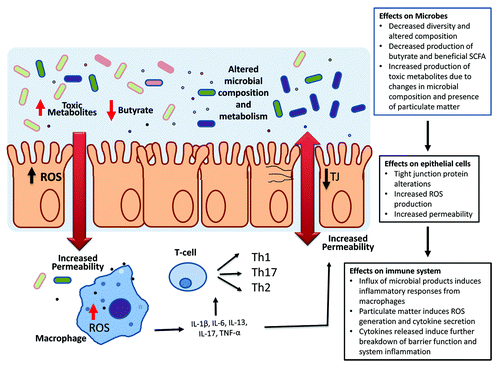Figures & data
Figure 1. Proposed model of particulate matter induction of intestinal and systemic inflammation. Particles will have both direct effects on the gut epithelial cells and be metabolized by resident gut microbes into toxic metabolites. PM-induced changes in epithelial tight junctions through ROS production increase gut permeability allowing for an influx of microbial products and particulate matter into the lamina propria and increased interactions with immune cells. This induces a pro-inflammatory response from resident immune cells which will further increase gut permeability and alter the luminal environment of the gut to allow for the growth of particular microbial strains more suited to survival in an inflammatory environment. Select microbial groups metabolize particulate matter into toxic metabolites which can directly influence microbial survival and epithelial function. The altered microbial community subsequently leads to changes in metabolic processes within the host whereby a decrease in short chain fatty acid production occurs along with enhanced production of non-beneficial metabolites.

